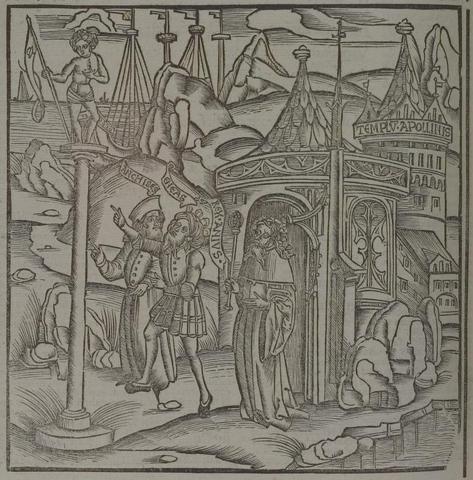CORE VOCABULARY
veneror, ātus sum, 1, dep. a.: to venerate, reverence, revere, 3.79; adore, worship, 5.745; bow before, kneel at, 12.220; p., venerātus, a, um, (pass.), supplicated, entreated, 3.460.
struō, strūxī, strūctus, 3, a.: to place side by side or upon; to pile up; build, erect, 3.84; cover, load, 5.54; arrange, 1.704; like īnstruō, to form or draw out a line of battle, 9.42; (fig.), to plan, purpose, intend, 4.271; bring about, effect, 2.60. (rel. to sternō)
vetustus, a, um: old, ancient, 2.713. (vetus)
Thymbraeus, a, um: adj. (Thymbra), of Thymbra, a town in the Troad, in which was a temple of Apollo; hence, Thymbraean, an epithet of Apollo, 3.85.
Trōia, ae, f.: 1. Troy, the capital of the Troad, 2.625, et al. 2. A city built by Helenus in Epirus, 3.349. 3. A part of the city of Acesta in Sicily, 5.756. 4. The name of an equestrian game of Roman boys, 5.602.
Pergama, ōrum, n., Pergamum, ī, n., and Pergamus (-os), ī, f.: 1. The citadel or walls of Troy, 3.87; Troy, 4.344, et al. 2. The Trojan citadel of Helenus in Epirus, 3.336.
rēliquiae, ārum, f.: the things left; remnant, 1.30; relics, remains, 4.343. (relinquō)
Danaī, ōrum, m.: the Greeks, 2.327.
immītis, e: (adj.), not mellow; not mild; merciless, fierce, cruel, ruthless, 1.30.
Achillēs, is (eos or ī), m.: the son of Peleus, king of Thessaly, and Thetis, daughter of Nereus, 1.468, et al.
iubeō, iussī (fut. perf. iussō for iusserō, 11.467), iussus, 2, a.: to order, request, usually w. inf., freq.; bid, 2.3; ask, invite, 1.708; will, wish, desire, 3.261; direct, enjoin, admonish, 3.697; persuade, advise, 2.37; to clear by command, 10.444; w. subj., 10.53.
augurium, iī, n.: the business of the augur; augury, divination, 1.392; an augury, omen, portent, 2.703; oracle, 3.89; presage, 5.523. (augur)
inlābor, lāpsus sum, 3, dep. n.: to glide or fall into, w. dat.; move into, 2.240; descend into, inspire, 3.89.

